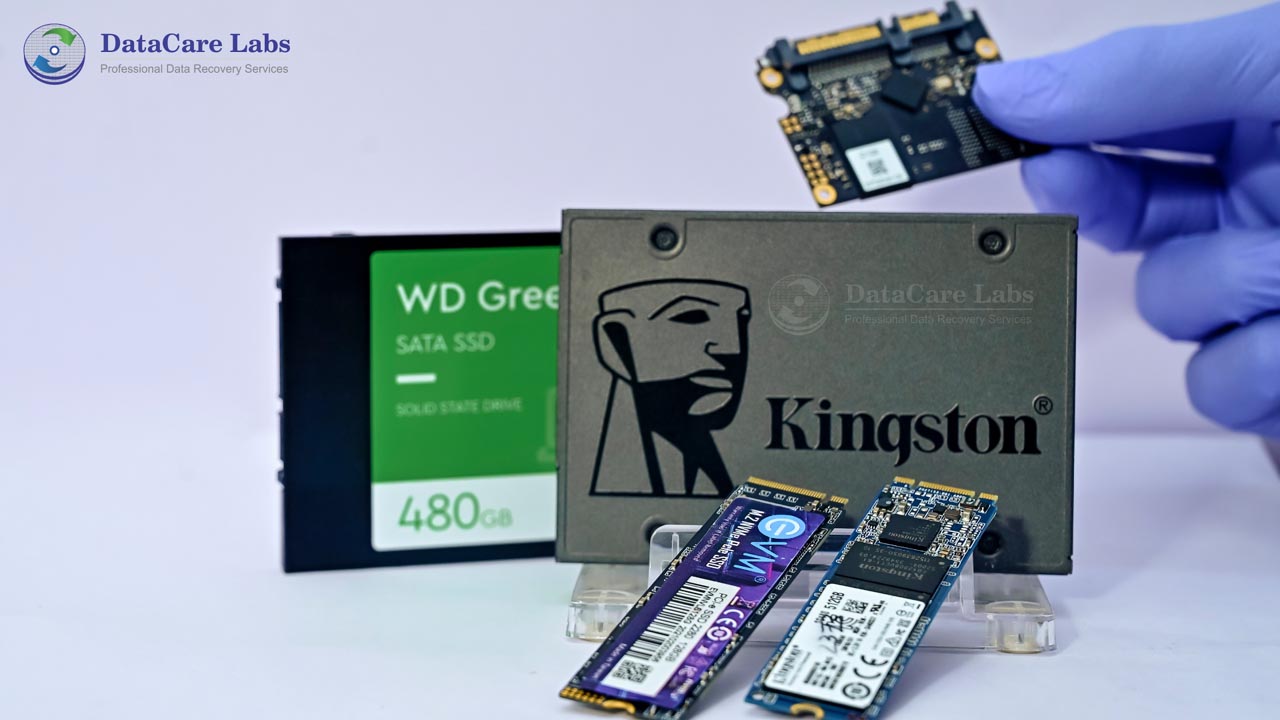Class 100 Clean-Room
A controlled environment that has a low level of environmental pollutants.
Advanced Data Recovery Lab
Advanced world-class tools are those that are highly sophisticated and state-of-the-art.
Data Security
Various encryption algorithms and techniques will be used in the recovery process.
Expert SSD Data Recovery with a Commitment to Excellence
Solid-state drives (SSDs) offer superior speed and performance compared to traditional hard disk drives (HDDs). However, data loss on SSDs can still occur due to various factors, including accidental deletion, formatting, hardware malfunctions, or even power surges.

At DataCare Labs, we understand the critical nature of your data stored on Solid State Drives (SSDs). Whether it’s crucial business documents, cherished memories, or important files, the loss of data can be a stressful experience. Our dedicated SSD data recovery services are designed to provide swift, reliable, and secure recovery solutions to help you regain access to your valuable information. DataCare Labs assures a complete data recovery of your Solid State Drive (SSD), ensuring a 100% success rate in all potential instances of data loss. Our team of experienced professionals specializes in recovering lost files from SSDs using advanced techniques and specialized equipment.
Solid-state drives (SSDs) offer superior speed and performance compared to traditional hard disk drives (HDDs). However, data loss on SSDs can still occur due to various factors, including accidental deletion, formatting, hardware malfunctions, or even power surges.
At DataCare Labs, we understand the critical nature of your data stored on Solid State Drives (SSDs). Whether it’s crucial business documents, cherished memories, or important files, the loss of data can be a stressful experience. Our dedicated SSD data recovery services are designed to provide swift, reliable, and secure recovery solutions to help you regain access to your valuable information. DataCare Labs assures a complete data recovery of your Solid State Drive (SSD), ensuring a 100% success rate in all potential instances of data loss. Our team of experienced professionals specializes in recovering lost files from SSDs using advanced techniques and specialized equipment.
Trust us to recover your valuable data swiftly and effectively, ensuring minimal downtime and prioritizing the security and confidentiality of your information throughout the process.
Our comprehensive data recovery process includes:
16+ years
We’re In Business
16+ years
We’re In Business
15.5K+ Cases
Completed Successfully
15.5K+ Cases
Completed Successfully
Don’t Let Your Data Drown: Causes of SSD Data Loss
Solid-state drives (SSDs) offer lightning-fast speed and improved durability compared to traditional hard drives, but they’re not invincible. Data loss on SSDs can happen due to various unexpected circumstances. Here are some common culprits:
Data Recovery Process
Our data recovery process is straightforward and easy to understand. We are fully transparent in all steps of the process, so you can trust us to handle your data with care.
